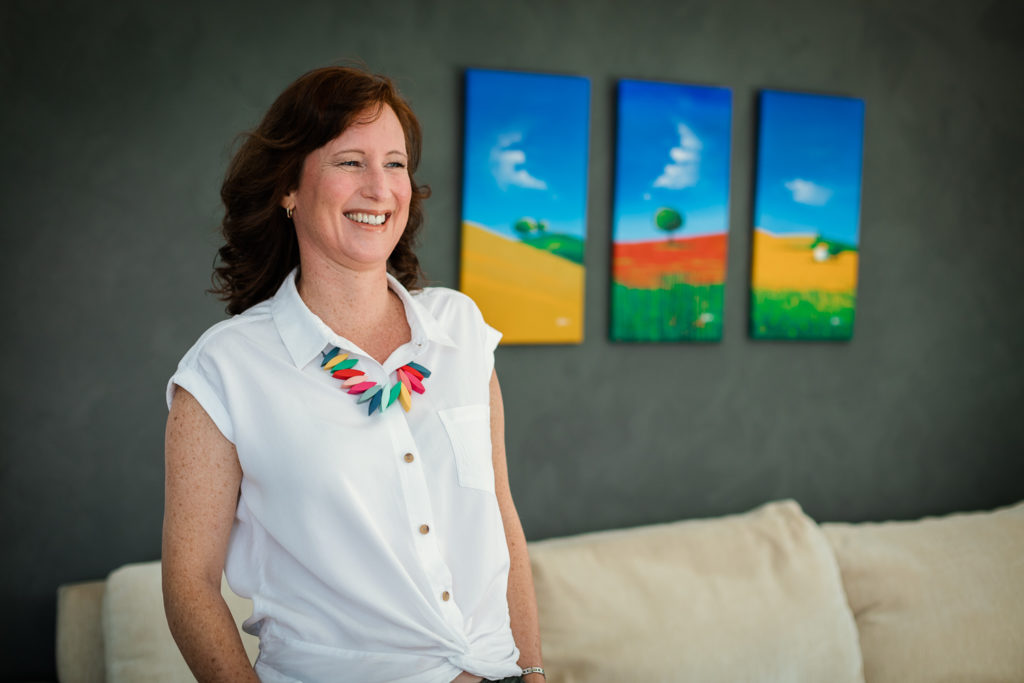Joy is What We’re After
Rediscover the wonder. Howl with laughter. Find glee in the simple things. Grow your happy. Play.
In a world that’s peppered a little too heavily with depression, anxiety and stress, few of us would refuse an extra dose of happiness. Playfulness is the booster shot. Fortunately, your capacity for fun is not something that requires a fairy godmother’s magic wand. It’s a space within yourself that has plenty of potential to grow. Sometimes it just needs a little nurturing.

Image credit: Ryan McGuire from Pixabay
When I worked with children with severe autism and intellectual disabilities, I learned a fascinating thing: it was often the parents, not the children, who needed to learn to play nicely. When children can’t speak, it’s the gleam in the eye that matters—that moment swollen with anticipation when both know what the other is going to do. That’s when the joy bursts begin.
I witnessed those profound moments when parents first learned they COULD communicate back and forth with their child. They discovered the wonder of shaking a shaker in unison, peeking out from behind a blanket in random explosions of “There you are!”, or collapsing in a heap together at the end of a song, in an eruption of giggles.
The adults needed to slow right down, stop doing stuff every 3 seconds and stop filling all the space talking.
The reason this worked? The emotional connection with another is the essential first step to many other things a child needs to develop, including playing.

Image credit: Robin Higgins from Pixabay
This gleam in the eye for grown-ups might be that knowing smile from an inside joke in conversation, or the wink you gave as you walked by, or the secret sign you recognised from across a room.
Discover The Playful Rat
Neuroscientists Pellis & Pellis ran play experiments with rats to uncover patterns formed through play-fighting. They found that rats need play to learn survival skills, but it wasn’t through honing movement, thinking or social skills necessarily.
Play helped them learn to adjust their emotions based on the unpredictable scenarios it presented (Apparently rats have feelings too).
Through play they learned when to be more aggressive, when they’d crossed a line, how to tease and how to show affection.
The take-home point for humans is that through play our brains learn to deal better emotionally with the unexpected things life throws at us. I interpret that as resilience.
And let’s face it – who doesn’t want to be playfully happy?
Play is, by definition, pleasurable. No expected outcomes – just pure enjoyment of the moment. Children are experts at it. They can turn something very functional into something far more amusing. Take the functional task of eating, for example. The joy of squishing mashed potato through your fingers and then trying it on your hair, or seeing how far peas can be thrown, and being thrilled by the bright colours of strawberries and pineapples.
When was the last time you threw spaghetti onto a wall to test if it was cooked?
It’s never too late to develop your playful side. The more you play, the more easily and naturally playfulness will come to you.
It’s not a personality thing. Play may look different to each of us, but we all have the capacity for fun-seeking and spontaneity, even if it requires a little coaxing.
So What Emotional Benefits Justify You Going Out to Play After This?
Being playful will improve your mental health.
- Play counteracts depression
Without play we become incapable of experiencing sustained pleasure, says Dr Stuart Brown, in his book on how play shapes the brain. Doesn’t matter how old you are. The opposite of playfulness is depression. That’s a serious repercussion for not having enough fun.
- Play is a stress reliever
A cheerful activity releases endorphins into your system. We like endorphins. They are happy hormones that give us natural highs.
The rat experiments from earlier crunched the numbers on this … After the rats had been through some rat stress, a dose of rough and tumble play lowered their fight-or-flight hormone levels, which had ramped up during the stress.
Play can change the stress status of your body from fight-flight mode to a happy high.
- Play keeps you young.
“We don’t stop playing because we grow old; we grow old because we stop playing.” – George Bernard Shaw
Grandparents, you already know this. Those playdough sculptures and cricket games with the grandkids keep the brain cells stimulated and the body moving.
Laughing, singing, moving about happily or just becoming fully absorbed in something pleasant leads to taking fuller breaths, getting more oxygen into our systems and relaxing. Muscle tension eases, and with that, so does generalised fatigue, body aches and stiffness. When our digestive process relaxes we can better resist gastrointestinal disorders and cardiac tension.
Playfulness can actually increase your resistance to disease and boost your vitality.
- Play can help to heal emotional wounds.
Since it’s not about outcomes, in play it is impossible to fail. A bit of silliness or spontaneous creativity can relax us and bring about a sense of well being. As play gently invites us into creativity, and through that, mastery, our self-esteem is given room to grow. Movement in play invites release, and creativity nurtures insight.
When talking is not an effective pathway for dealing with trauma, play can heal – even for adults. Just as our brains can be changed by trauma, they can be rewired with positive interactions through play.
9 Playful Ways to Give Yourself a Joy Boost
Ready for a booster shot? Here some things to try:
Invite Fun as a VIP

- Organise a game night. There’s nothing like cheerful banter around a board game to get the play juices flowing. And don’t be fooled! Those who claim they are not fans are often the ones who surprise you most with their buffoonery.It doesn’t have to be board games. One of my favourites is themed murder mystery nights. I have never laughed so hard as the night my usually deep-thinking friend took centre stage as a gregarious celebrity for the mystery evening, complete with accent, selfies, dinner meditation and companion bottle of wine (pictured above).
If you aren’t able to host, try a location-based game. Two on my wishlist are a real-life rendition of Cluedo in the city, or an adventure in an Escape Room.
- If getting regular exercise doesn’t excite you, try a fun alternative workout.
“I need another hoola hoop session on my balcony tonight.”
My work colleague once stunned me with this inspiring comment. Of course! What a great way to get the blood circulating.Instead of a training circuit in a gym how about a running around with your arms in the air, aka flying a kite? Or try stand-up paddle boarding. Or community bike riding. Or a self-defence class.
- Seek out comedy, simply to laugh. Watch a comedian live, or find an amusing podcast that will meet your recommended daily dose of laughter.
– ‘There’s No Such Thing as A Fish’ is a podcast on Spotify that has me laughing out loud. It’s a fusion of fact and comedy, discussed by a rotating crew of presenters who have fun with the absurd things of life.
– Trevor Noah’s multiracial humour is one of our favourites, especially in his South African shows.
– A TV show that cracks us up is ‘The Goes Wrong Show’. The first episode went viral. That resulted in another six hilarious episodes where actors improvise as their theatre skits go very wrong.
Break the rules
- Down with Stranger Danger! You’re old enough now discern a suspicious person without this blanket rule. Not all strangers are evil.
– Chuckle with the mum in the park about her cute toddler’s antics.
– Offer to help the backpacker who looks lost.
– Joke with the shopper next to you who just spilled his coffee.
I don’t know about you, but my endorphins shoot up when I’ve had an unexpected laugh with a stranger. It’s a feel-good moment of all being well with you and your fellow man, and the world not being so hostile after all. - Impossible! How could that be? Magic tricks and illusions can sprinkle a little fun around when you next have the chance to thrill a captive audience.
- Ignore age recommendations on kids’ toys. Indulge your playful spirit with nerf guns, water-slides, rub-on tattoos or beading kits. It’s for your benefit, but kids will love you for it too.
Don’t overthink it

Image credit: Tookapic from Pixabay
- Play with a pet. Especially a baby one. They’re play geniuses, and they’ll get you smiling and moving and chasing and cuddling in all manner of unpredictable, joy-filled capers.
- Create something that you have no skill at creating. Rope in someone else to up the hysterics. Fish around on Pinterest for a truly unattainable goal, and experience the freedom of cutting, snipping, pasting, sewing, painting, sawing, hammering or assembling, for absolutely no functional reason at all, other than to laugh.
- Have a ‘Ferris Bueller’s Day Off’. Do everything your heart desires in your city. Breakfast, bike ride, art gallery, river cruise. Extend it by booking somewhere for the night and snuggling with your loved one by a fireplace with a good glass of wine.
Over to You
What form of play is beckoning to your laughter within?
Where will you find the most joy in play?
It’s yours for the taking.
Make space for it in your calendars or write it on your To Do list, and go play.
And please tell me about it.
- What comedy podcasts or shows can you recommend?
- What ideas are you going to try?
- Do you have a photo or idea to share?
Inspirational References:
- I love this book by Meredith Sinclair: Well-Played: The Ultimate Guide to Awakening Your Family’s Playful Spirit. A number of my ideas for these blogs have come from her insights.
- The rat science is from the book, ‘The Playful Brain: Venturing to the Limits of Neuroscience’ by Sergio and Vivien Pellis.
- Article from Helpguide.org: The Benefits of Play for Adults
- Article from Fix.com: Staying Young at Heart: Why Adults Should be Playing More
- Article from Synergetic Play Therapy: Trauma Impacts Abnormalities in the Brain and Play Therapy Heals Them
- Excerpt by Dottie Ward-Wimmer from book, ‘Play Therapy With Adults’ by C Schaefer.




